WRTC prepares students to meet the challenges of employment in the 21st Century
WRTC Students Gain Professional Experience Prior to Graduation
News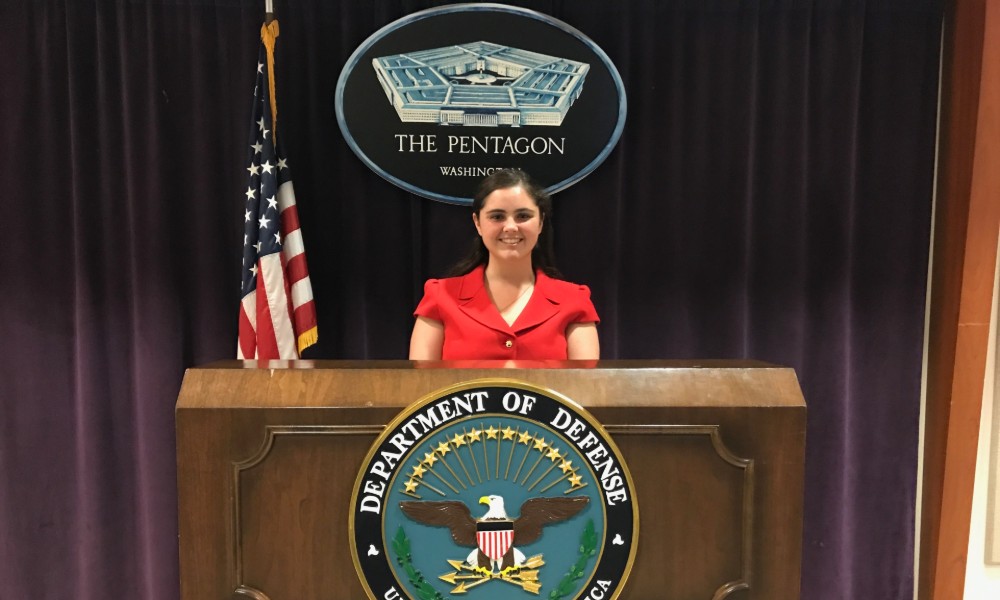
One of the biggest challenges college graduates face when seeking employment is a lack of professional experience in their field. In a highly competitive job market, a lack of experience may mean that graduates, no matter how successful they have been in their course work, may be passed over in favor of other candidates. But how does a busy college student gain such valuable access to the workplace while they are undertaking coursework? The School of Writing, Rhetoric and Technical Communication is a great place to major because it actively supports and encourage students to gain professional experience while they are enrolled in courses.

One of the bedrocks of the WRTC major program is the WRTC 495: Internship requirement. WRTC is one of only 17 majors at JMU that require an internship or other experiential learning to graduate. The decision to include this 150-hour requirement goes back to the formation of the School in 2008. According to Dr. Traci Zimmerman, Academic Unit Head for the School, “the internship is an important space for students to translate the skills and theories they’ve encountered as WRTC majors to the workspace.” Additionally, WRTC students are not placed into specific internships; students must identify, apply for, and secure their own internships. Dr. Zimmerman says, “our students are more confident and competent about conducting their job search after the internship experience. In addition, the experiences and connections our students make as a result of successfully completing the internship requirement opens even more doors of possibility when thinking about the job market.”
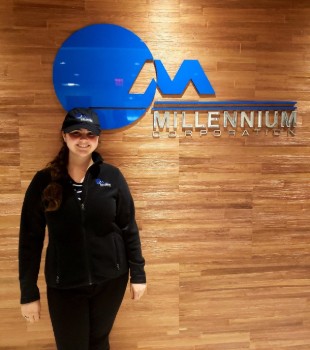
Millennium Corporation in Crystal City, VA
Cindy Allen, WRTC Internship Coordinator, guides students from start to finish in the internship process. All students must successfully complete the first four core courses in the major before they are eligible to take an internship for WRTC credit. Under Professor Allen’s guidance, students are counselled to “think big” when considering internship possibilities. “I encourage students to think about what their dream internship experience would be and start there; research that company or that career and make some inquiries. Students don’t realize that companies may be open to interns, even if they don’t advertise for one. I really encourage them not to just ‘check the box’ on the internship requirement. Internships are one of the most important parts of their academic experience in WRTC.”
Another component of the WRTC major that builds professional experience is the community-based learning (CBL) course requirement. Community-based learning courses are designed to connect students with a community partner organization and students elect to work with business, nonprofit, community or health professionals and complete at least 20 hours of work for the partner organization. According to Dr. Zimmerman, this requirement also gives WRTC majors a range of experiences to showcase in their job search materials.
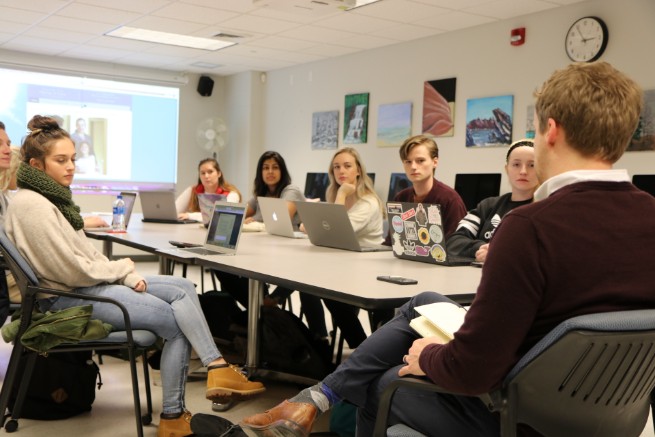
One of the final requirements WRTC majors complete prior to graduation is a required capstone course. The WRTC capstone gives students a space to meaningfully reflect on the skills and knowledge they have gained throughout their academic program and then translate that into a professional digital portfolio that can be used for the job search or to apply to graduate or professional schools. Course instructor Cynthia Martin explains that the capstone “gives students opportunities to take stock of the work they have done in the major and envision how their experiences and coursework have positioned them for the next step, whether that be graduate school or the workplace.” Through individual consultations with the instructor, students determine the form and purpose of their portfolios to best emphasize their writing and editing skills as well as the breadth and depth of their rhetorical and technical knowledge.
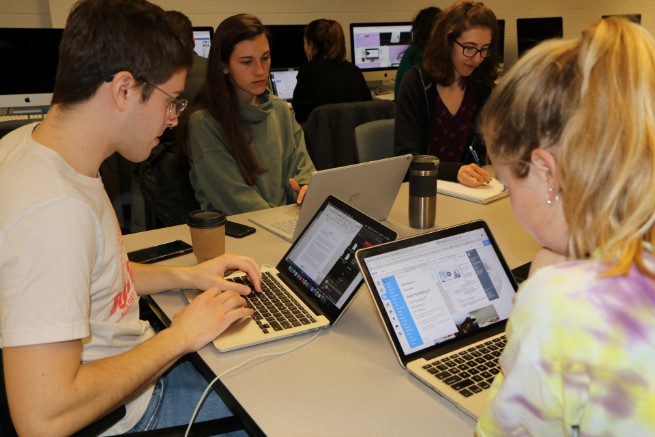
In addition to the three required courses mentioned above, WRTC students have one additional way to gain professional experience prior to graduation. WRTC offers a variety of practicum courses designed to give students the opportunity to gain practical experience in their field of study.
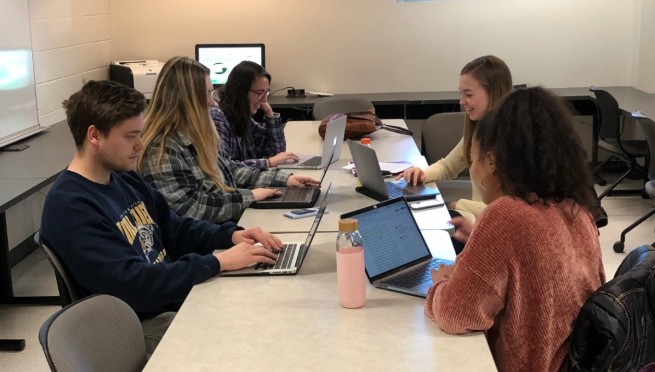
Recent examples of WRTC practicum courses include serving as editor of the RhetTech Undergraduate Journal, an international online journal housed in the School of Writing, Rhetoric and Technical Communication or the James Madison Undergraduate Research Journal (JMURJ,) a multidisciplinary, student-run, peer-reviewed undergraduate academic journal.
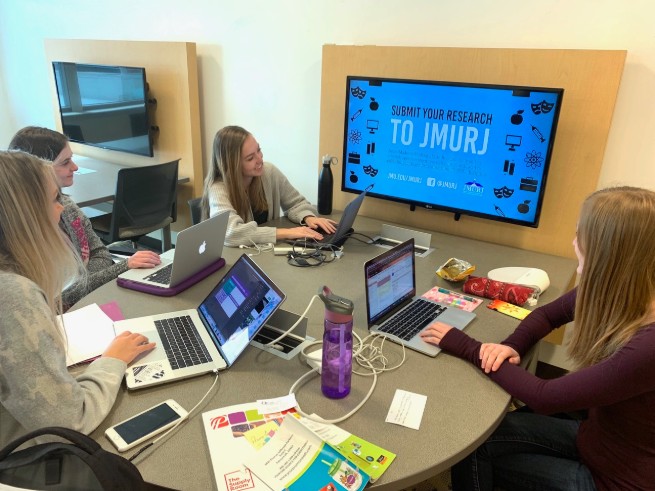
Other practicum offerings include JMU X-labs courses, where WRTC students have the opportunity to work on teams with students from other disciplines. All X-lab courses challenge student teams to work on real problems experienced by off-campus partners. Not only do WRTC students participate in project development, they also use their expertise as writers to tell the team's story on course websites and social media. Practicum offerings such as Community Innovations, the Hacking for Diplomacy, and the Virginia Drones Project present WRTC students the opportunity to work with clients such as the departments of State and Defense, the Smithsonian Conservation Biology Institute, and the Aspen Institute, and these courses have been written about in the Washington Post, the Chronicle of Higher Education, and the Richmond Times Dispatch.
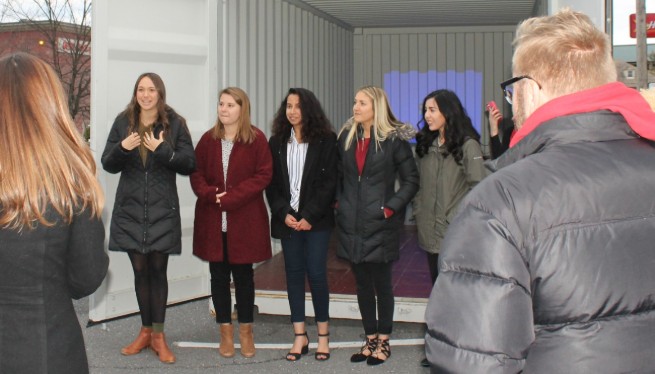
Much is written these days about the challenges college graduates face in entering a competitive global job market. WRTC is facing these challenges head on, not only through a rigorous course progression, but also by giving students the opportunity to gain professional experience prior to graduation. WRTC graduates leave JMU armed with an impressive résumé, one that includes a 120-hour professional internship, a 20-hour industry-specific project, and a detailed and professional portfolio that highlights the proficiencies they are prepared to bring to the table, either in the job market or in advanced graduate degrees. Many graduates also have additional experience gained through practicums. In a world where new college graduates struggle to be noticed in the crowd, WRTC students definitely stand out.
